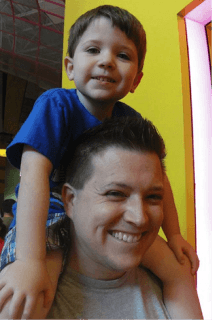December 2, 2013
FACES OF FREEBSD
Each week we are sharing a story from someone involved in FreeBSD. This is our Faces of FreeBSD series. It may be a story from someone who’s received funding from us to work on development projects, run conferences, travel to conferences, or advocate for FreeBSD. But, it is always from someone who is making a positive difference in the FreeBSD world.
Here’s a chance to get to know your fellow FreeBSD enthusiast. Sit back and enjoy another 2013 Faces of FreeBSD story.

My name is Reid Linnemann. I am 32 years old and work at Spectra Logic Corporation (Boulder, CO). I grew up in Edmond, Oklahoma, graduating from Oklahoma State University with a BS in Computer Science in 2004.
I worked at the Oklahoma Department of Career and Technology Education (Stillwater, OK) developing Zope and Plone applications interfacing with SQL databases and single sign-on services, and CymSTAR, LLC (Broken Arrow, OK) developing and modifying real-time simulation software and implementing DIS for virtual air refueling simulation. I was part of the team that designed and built CymSTAR’sKC-135 BOWST trainer for the Mobility Air Force, and contributed to the development of MAF DMO virtual air refueling standards.
I am a versed C and Python programmer, with a good bit of Java, Perl, Ruby, C++, and other various and sundry languages under my belt. I’m interested in 8 bit AVR microcontrollers in my free time.
I was first introduced to FreeBSD in 1999 when a particular greybeard (the senior technician for my shift at a local ISP) played XBill on an X server in WindowMaker. He said it ran on his FreeBSD machine at home across a dedicated 64k subscriber line, displayed in a little window on his workstation. I was astounded, quickly taken in by the FreeBSD users on my shift, and spent a bleary-eyed overnight session with a pair of coworkers who helped me run FreeBSD 3.4 on my own computer.
FreeBSD was remarkable, available at no cost and developed by a group of people scattered across the globe. Its historical lineage to BSD, design philosophy, and professional community stood out. I could examine the source code, and read reams of manual pages documenting every program, libc function, and configuration file if I wanted.
I used the system to build and install ports, and explored, getting actively involved in the mailing lists and forums, studying, passing on my own limited knowledge to those who could benefit from it. I pursued my career in the open source software world, learning the differences in BSD and GNU licensing and the fragmented nature of Linux distributions, realizing the FreeBSD community was more mature and well distributed about industry, education, and research. Everything steered me towards working with and on FreeBSD.
FreeBSD was remarkable, available at no cost and developed by a group of people scattered across the globe. Its historical lineage to BSD, design philosophy, and professional community stood out. I could examine the source code, and read reams of manual pages documenting every program, libc function, and configuration file if I wanted.
I used the system to build and install ports, and explored, getting actively involved in the mailing lists and forums, studying, passing on my own limited knowledge to those who could benefit from it. I pursued my career in the open source software world, learning the differences in BSD and GNU licensing and the fragmented nature of Linux distributions, realizing the FreeBSD community was more mature and well distributed about industry, education, and research. Everything steered me towards working with and on FreeBSD.
Donate today to help us continue and increase our support of the FreeBSD Project and community worldwide! Making a donation is quick and easy. To make a donation go to: http://freebsdfoundation.org/donate/
